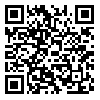1. Chen Y, Li H. Mother's education and child health: Is there a nurturing effect? J Health Econ. 2009;28(2):413-26. [
DOI] [
PMID]
2. Belli PC, Bustreo F, Preker A. Investing in children's health: what are the economic benefits? Bull World Health Organ. 2005;83:777-84. [
Google Scholar]
3. Probst JC, Barker JC, Enders A, Gardiner P. Current state of child health in rural America: how context shapes children's health. J Rural Health. 2018;34:s3-s12. [
DOI] [
PMCID]
4. Gaspar T, Matos MG, Pais R, Jose L, Leal I, Ferreira A. Health-Related Quality of Life In Children and Adolescents and Associated Factors. Journal of Cognitive & Behavioral Psychotherapies. 2009;9(1). [
Google Scholar]
5. Fadaei B, Movahedi M, Akbari M, Ghasemi M, Jalalvand A. Effect of Maternal Age on Pregnancy Outcome. Journal of Isfahan Medical School. 2011;29(145). [
Google Scholar]
6. Målqvist M. Maternal health-still a long way to go. Scand J Public Health; 2018. p. 783-4. [
DOI] [
PMID]
7. McNabb DE. The population growth barrier. Global pathways to water sustainability: Springer; 2019. p. 67-81. [
DOI]
8. Astolfi P, Zonta LA. Risks of preterm delivery and association with maternal age, birth order, and fetal gender. Human reproduction (Oxford, England). 1999;14(11):2891-4. [
DOI] [
PMID]
9. Ranjbar F, Shirzad M, Kamali K, Akhondi MM, Ghoodjani A, Behjati Ardakani Z, et al. Fertility behaviour of Iranian women: a community-based, cross-sectional study. Arch Iran Med. 2015;18(1):2-5. [
Google Scholar]
10. Nasrabad HBR, Abbasi-Shavazi MJ. Ideal fertility in Iran: a systematic review and meta-analysis. International Journal of Women's Health and Reproduction Sciences. 2020;8(1):10-8. [
DOI]
11. Habib S, Rishpon S, Rubin L. Mother's education and ethnicity effect on health measures for children in the Haifa subdistrict. Harefuah. 2005;144(6):402-6, 55. [
Google Scholar]
12. Ilmonen J, Isolauri E, Laitinen K. Nutrition education and counselling practices in mother and child health clinics: study amongst nurses. J Clin Nurs. 2012;21(19-20):2985-94. [
DOI] [
PMID]
13. Peng S, Bauldry S, Gilligan M, Suitor JJ. Older mother's health and adult children's education: Conceptualization of adult children's education and mother-child relationships. SSM Popul Health. 2019;7:100390. [
DOI] [
PMID] [
PMCID]
14. Sabrian F, Zulfitri R, Dewi AP. The effectiveness of simulation health education to mother breastfeeding skill between two groups in rural area of Riau, Indonesia. Enfermería Clínica. 2019;29:9-12. [
DOI]
15. Kibreab F, Lewycka S, Tewelde A. Impact of mother's education on full immunization of children aged 12-23 months in Eritrea: population and health survey 2010 data analysis. BMC Public Health. 2020;20(1):1-10. [
DOI] [
PMID] [
PMCID]
16. Karlidag-Dennis E. Gender Justice, Education and Equality: Creating Capabilities for Girls' and Women's Development. Research in Educational Administration and Leadership. 2020;5(2):624-8. [
DOI]
17. Stromquist NP. Women's Education in the 21st Century. Comparative education: The dialectic of the global and the local. 2022:187. [
Google Scholar]
18. Shahraki M, Agheli L, Assari Arani A, Sadeghi H. The Effect of Mothers' Education and Employment on Children's Health. Jentashapir Journal of Health Research. 2016;7(4):e78445. [
DOI]
19. Maitra P, Peng X, Zhuang Y. Parental Education and Child Health: Evidence from China. Asian Economic Journal. 2006;20(1):47-74. [
DOI]
20. Chen E, Martin AD, Matthews KA. Understanding health disparities: the role of race and socioeconomic status in children's health. Am J Public Health. 2006;96(4):702-8. [
DOI] [
PMID] [
PMCID]
21. Rahman A, Chowdhury S. Determinants of chronic malnutrition among preschool children in Bangladesh. J Biosoc Sci. 2007;39(2):161-73. [
DOI] [
PMID]
22. Semba RD, de Pee S, Sun K, Sari M, Akhter N, Bloem MW. Effect of parental formal education on risk of child stunting in Indonesia and Bangladesh: a cross-sectional study. Lancet. 2008;371(9609):322-8. [
DOI] [
PMID]
23. Kazembe LN. An additive regression model for investigating the relationship between childhood health and socio-economic status. Spat Spatiotemporal Epidemiol. 2013;6:71-84. [
DOI] [
PMID]
24. Aslam M, Kingdon GG. Parental Education and Child Health-Understanding the Pathways of Impact in Pakistan. World Development. 2012;40(10):2014-32. [
DOI]
25. Nie P, Ding L, Sousa-Poza A, Alfonso Leon A, Xue H, Jia P, et al. Socioeconomic position and the health gradient in Cuba: dimensions and mechanisms. BMC Public Health. 2020;20(1):866. [
DOI] [
PMID] [
PMCID]
26. Mugo MG. Impact of Parental Socioeconomic Status on Child Health Outcomes in Kenya**. African Development Review. 2012;24(4):342-57. [
DOI]
27. England LJ, Kendrick JS, Gargiullo PM, Zahniser SC, Hannon WH. Measures of Maternal Tobacco Exposure and Infant Birth Weight at Term. Am J Epidemiol. 2001;153(10):954-60. [
DOI] [
PMID]

 , Ahmad Faramarzi
, Ahmad Faramarzi 

 , Hamidreza Farrokh-Eslamlou
, Hamidreza Farrokh-Eslamlou 

 , Hamed Zandian
, Hamed Zandian 

 , Cyrus Alinia *
, Cyrus Alinia * 







 gmail.com
gmail.com